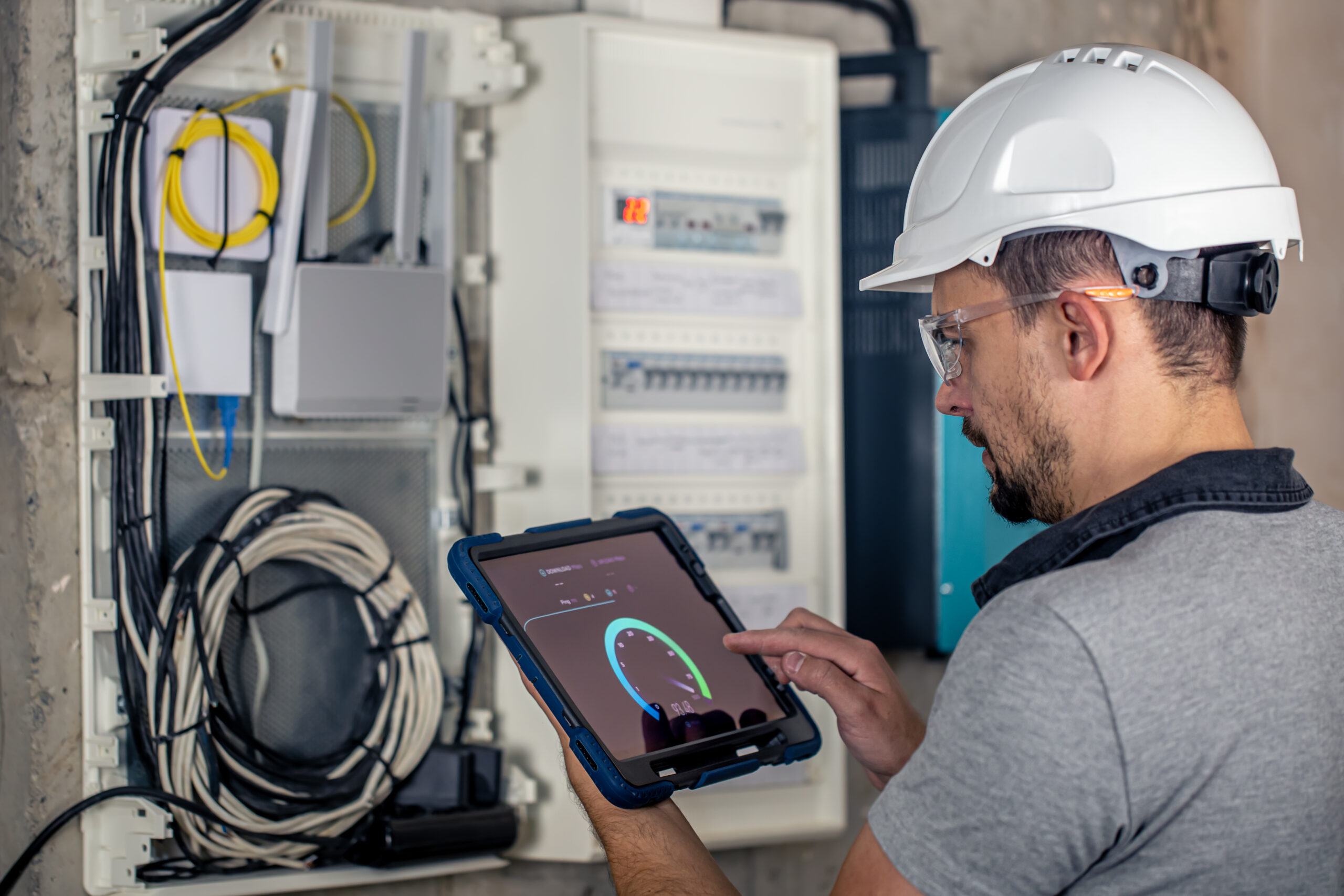There’s no denying how smart building technology is growing rapidly and currently reshaping how we all work and live, but what a lot of people don’t realize is that electrical contractors are the professionals who are at the dead center of this technological revolution.
We recently got in touch with some renowned electrical contractors in Ohio at Garber Electric to get a more in-depth glimpse into how today’s electrical work is being defined by energy optimization, digital integration and data-driven control systems—and not just basic wiring and power distribution.
Today in 2025, the most tech-savvy electrical contractors are going a step beyond simply installing systems to also help engineer the long-term future of intelligent infrastructure—so, check out the below sections to learn more about how connected electrical contracting is ushering in new construction era!
What Specifically Defines Today’s Smart Buildings?
A smart building is one that utilizes software, sensors and network controls in order to automatically manage HVAC, lighting, access control and power consumption. These integrated systems are also capable of continuously collecting valuable data to improve security, comfort and efficiency.
Today’s electrical contractors are providing a pivotal role toward integrating these various technologies through features like low-voltage communication networks and services like commissioning tech-savvy automation systems that can respond to weather, occupancy and energy pricing all in real time.
This shift from the conventional electrical work of the past toward more of a hybrid professional discipline is now blending data, power and intelligence together—which means that the most successful contractors have new tools, skill sets and endless opportunities!
The Expanding Role Of Electrical Contractors Due To Smart Building Infrastructure
A lot of electrical contractors in today’s industry are now installing LED systems and motion sensors that are configured to Internet of Things (IoT) platforms that are directly tied into Cloud-based management dashboards.
This has subsequently opened the door for electricians to have an expanded role on construction projects of all sizes, because countless companies want to optimize employee comfort and efficiency—while also reducing energy waste.
Electrical contractors are now becoming increasingly more responsible for electrical integrations with HVAC and lighting systems, as well as managing plug loads during energy peaks. And in many of today’s construction projects, electrical contractors are working alongside mechanical engineers and IT professionals to solidify unified building networks!
Smart Electrical Tools For Smart Contractors
Connected electrical contracting isn’t solely about developing new and old buildings, because it’s also oriented around revolutionizing how contractors work on a daily basis.
Today’s electrical professionals are now utilizing augmented reality (AR) visualization, digital modeling software and building information modeling (BIM) systems to more precisely plan out installations. Not only do these tools go a long way to help companies predict electrical load demands, but they’re also preventing other trade-related conflicts and reducing waste long before construction projects even break ground.
Diagnostic tools and smart meters also allow electrical technicians to identify faults faster, monitor circuits remotely, and automatically document all sorts of valuable performance data. Cloud-based management apps then allow company supervisors to track compliance, productivity and safety metrics all in real time.
And the end results are fewer construction errors, faster project deliveries, and improved collaboration across various trades!
Maintaining Long-Term Sustainability Goals
Smart buildings aren’t just about providing people with added conveniences, because they’re also specifically designed to ensure that many different sustainability goals are met.
This is why electrical contractors have recently become major players toward installing and maintaining eco-friendly smart building technologies like smart lighting that can reduce electricity usage by upwards of 60%.
Advanced power management and HVAC controls also make commercial properties around 30-40% more efficient. Electrical contractors are also supporting countless buildings with battery storage, solar panel and EV charging infrastructure.
Ongoing Challenges & The Path Forward For Smart Building Technology
It’s also important to keep in mind that these technological transformations naturally come with their own unique challenges. This is why electrical contractors are constantly keeping up with quickly evolving industry standards, the growing need for data security, and all sorts of interconnected issues that occur between various systems.
Many electrical teams are also investing in smart technology training and certifications in order to remain on the cutting edge of the industry, and today’s trade schools are evolving curriculum to teach the newest electricians about how to program, optimize and analyze smart building technologies of all types.
And this forward-thinking approach is subsequently setting electrical contractors up to be the future go-to consultants for services like energy intelligence, system health, consumption trends and carbon performance.
The Future Of The Electrical Industry Is Connected!
As buildings everywhere inevitably become smarter, so will the people who install and maintain them. The rise of connected electrical contracting showcases so much more than basic tech upgrades, because it’s actually a complete transformation for the entire trade.
Today’s renowned contractors are blending voltage with analytics and craftsmanship with code by developing the foundation for buildings that think, homes that adapt, and electrical grids that communicate.
And in this new era, the electricians who embrace this forward-thinking mindset will subsequently become the professionals who usher in endless possibilities for both home and business owners everywhere!

